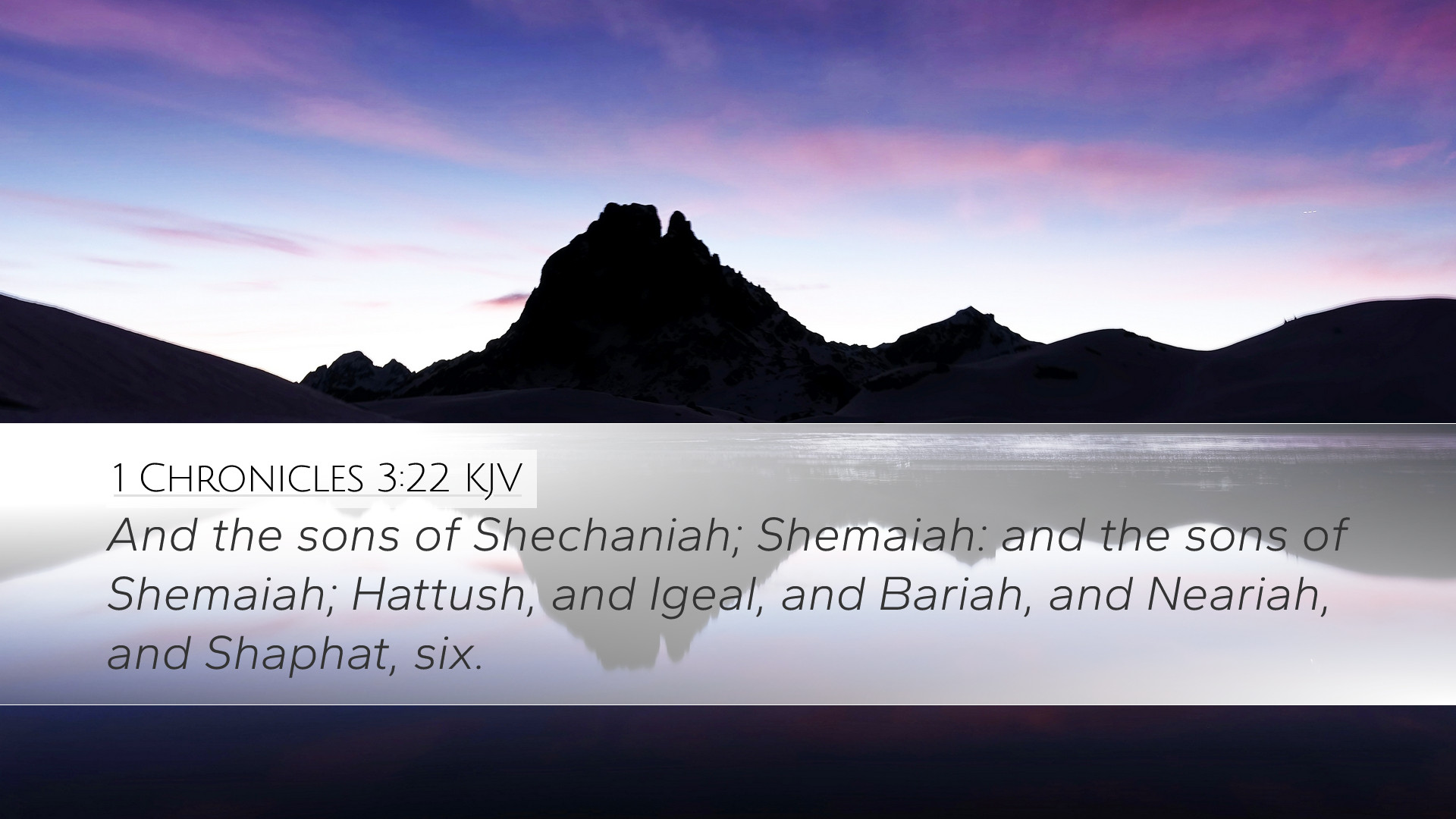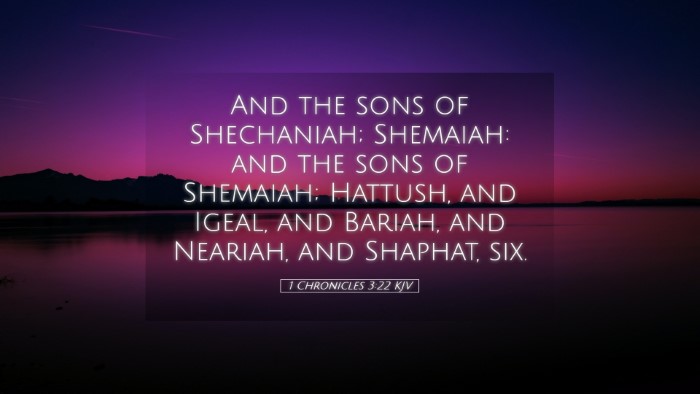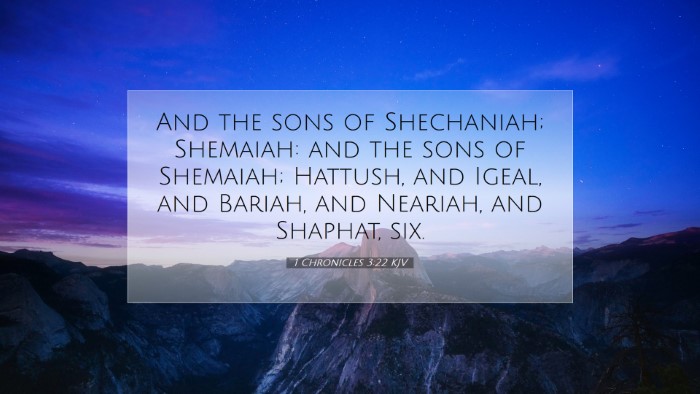Commentary on 1 Chronicles 3:22
Verse Text: "The sons of Shechaniah; Shemaiah, and the sons of Shemaiah; Hattush, and Igal, and Bariah, and near, and Shephatiah." (1 Chronicles 3:22)
Contextual Overview
This verse is part of a genealogical record in 1 Chronicles that seeks to establish the lineage of the tribe of Judah, particularly concerning the descendants of David. The chronicler emphasizes the importance of these genealogies to affirm God's promises and covenants, particularly those made to David regarding his lineage and the future kingdom.
Theological Significance
The genealogies in Scripture serve multiple purposes. They emphasize God's sovereignty in history and His faithfulness to His promises. Through these lists, we see the unfolding of redemption history, culminating in Jesus Christ, who is often referred to as the Son of David. In this specific verse, we are reminded of the faithfulness of God in preserving the line of David.
Insights from Matthew Henry
Matthew Henry notes that the genealogical records in Chronicles are intended to assure the people of Israel of their heritage and the continuity of God's plan. The mention of Shechaniah and his sons underscores the priestly lineage that plays a vital role in the worship life of Israel. Henry elaborates on how every name listed is significant and represents the faithfulness of God in maintaining a remnant for His purposes.
Insights from Albert Barnes
Albert Barnes highlights the meticulous nature of the genealogies presented in Chronicles. He emphasizes that the inclusion of names such as Hattush, Igal, and Bariah indicates the importance of each individual in God's divine plan. Barnes points out that these names may represent real men who served particular roles in God's covenant community, illustrating God's ongoing work through ordinary lives. He also notes that these names are essential for understanding the lineage of the Messiah.
Insights from Adam Clarke
Adam Clarke draws attention to the historical context of the names listed in this verse. Clarke elaborates on the meaning and significance of the names and their contributions to Israel's history. He suggests that understanding these genealogies provides insight into God's providence and the way in which He opted to work through families and individuals to fulfill His purposes.
Key Themes
- Divine Sovereignty: The genealogies reflect God's control over history and His design in utilizing specific individuals for His plan.
- Faithfulness of God: The preservation of the lineage from David through Shechaniah to future generations underscores God’s unwavering promises.
- Individual Importance: Each name in the genealogy signifies the role of individuals in God's redemptive plan, indicating that no one is insignificant in the eyes of God.
Application for Modern Readers
For pastors, scholars, and students of the Bible, 1 Chronicles 3:22 invites a deeper understanding of the importance of continuity in faith. In a world where identities can often feel fragmented, this verse reminds believers of their place in God's redemptive story. Each name in the genealogy represents a connection to God's promises, encouraging readers to reflect on their own spiritual heritage and responsibility to carry forth the faith.
Practical Reflections:
- Reflect on your spiritual lineage. Who have been the faithful figures in your life that have shaped your understanding of God?
- Consider the role of your own family in the context of God’s plan. How can you be a faithful steward of faith for future generations?
- Understand the significance of your contributions in the tapestry of God's work. Every believer plays a part in His kingdom.
Conclusion
1 Chronicles 3:22, while seemingly a simple genealogical entry, carries profound implications regarding God's sovereignty, faithfulness, and the value of individual lives in His overarching plan. By studying these names, we are invited to see our place within the greater narrative of redemption. The genealogies not only chronicle heritage but also point us to the ultimate fulfillment in Christ, inviting both serious reflection and application in our journey of faith.


